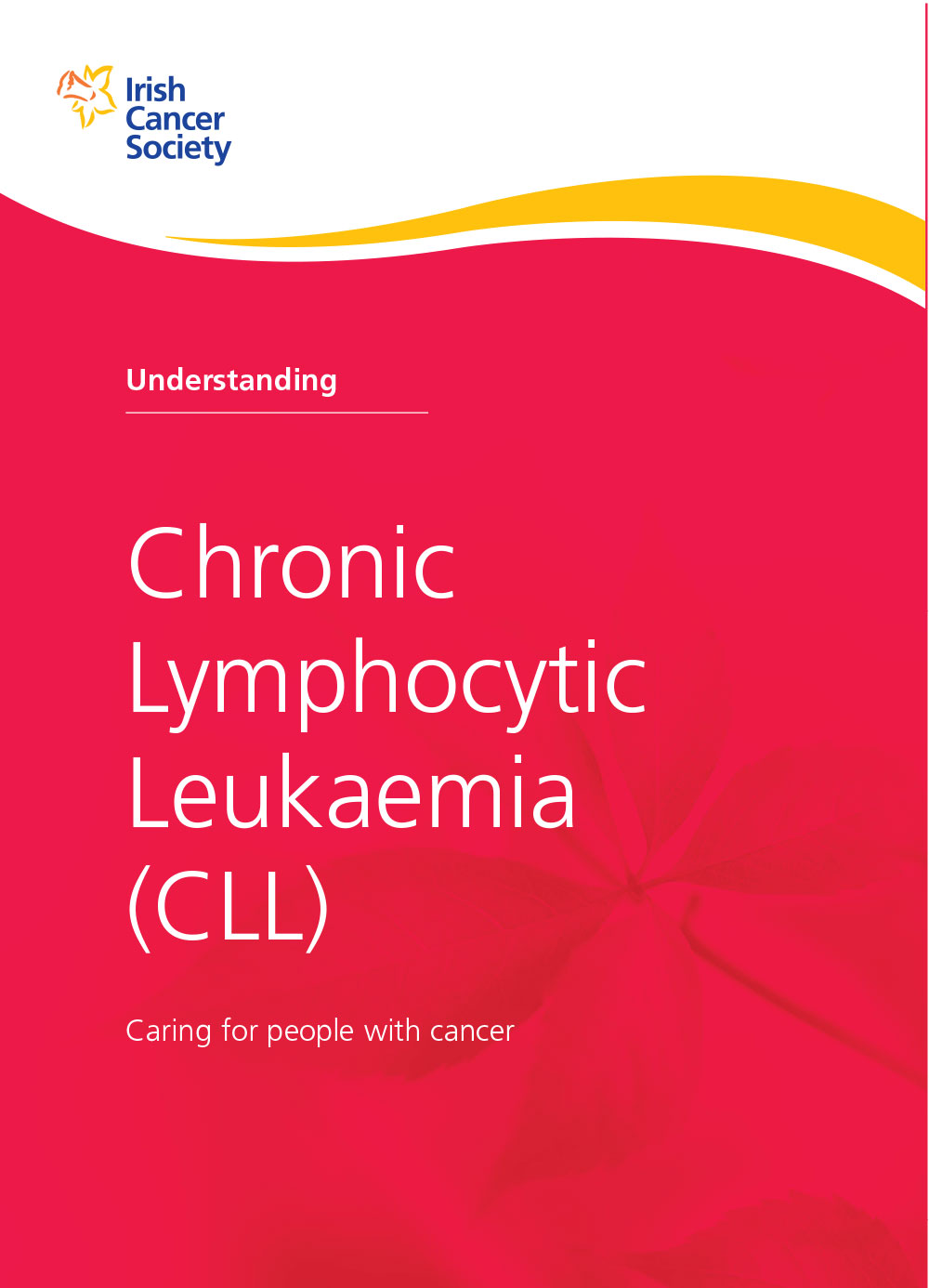Chronic lymphocytic leukaemia (CLL)
About 220* people in Ireland are diagnosed with CLL each year.
Signs and symptoms
Learn about the signs and symptoms of CLL. You are more likely to survive cancer if you find it at an earlier stage.
Treatments
There are a number of different treatments available for CLL. Your medical team will explain the best treatment options for you.
What is chronic lymphocytic leukaemia (CLL)?
CLL is a type of leukaemia (cancer of the blood). It is usually a slow-growing cancer of lymphocyte white blood cells.
CLL stops the white blood cells working properly to fight infection.
CLL also means that the lymphocytes don’t die off naturally at the end of their life span. The cells may build up in your lymph nodes and spleen, causing them to become swollen. They can also build up in your bone marrow, meaning there is not enough space for normal blood cells to develop. This causes problems with fighting infection, carrying oxygen and bleeding.
Many people with slow-growing CLL can live a normal life. Other people experience symptoms that affect their quality of life at different stages of their disease and treatment.
Small lymphocytic lymphoma (SLL)
CLL and SLL both affect lymphocytes. They are different forms of the same disease. The difference between them is where the cancer is mainly found:
- CLL: Most of the cancer cells are in the blood and the bone marrow. The lymph nodes and spleen may be affected too.
- SLL: Most of the cancer cells are in the lymph nodes.
If you have SLL and need more specific information, you can call our Support Line on 1800 200 700.
What do blood cells do?
There are 3 main types of blood cells:
- Red blood cells carry oxygen to all the tissues in your body.
- White blood cells are involved in fighting infection.
- Platelets form clots which stop you from bleeding.
All blood cells come from cells known as stem cells. These start out as immature cells (blast cells) and then they develop into different types of mature blood cells.
- Lymphoid stem cells develop into lymphocytes. Lymphocytes are white blood cells that fight infection. They are further divided into T-cells and B-cells, depending on how they fight infection.
- Myeloid stem cells go on to form red blood cells, platelets and some types of white blood cells.
New blood cells are normally made in your bone marrow. Bone marrow is the soft spongy tissue that fills the centre of some of your bones. New cells move out of your bone marrow and into your blood. Old cells are replaced when needed. With leukaemia, this process of making and replacing blood cells goes wrong.
What increases my risk of CLL?
The cause of CLL is unknown. But there are certain things called risk factors that can increase your chance of developing the disease.
These include:
CLL happens mostly in people aged over 50. More than half of people are aged over 70 years when they are first diagnosed. It doesn’t affect children.
It is more common in men than women.
You have a slightly higher risk of getting CLL if some of your close relatives (e.g. a parent, brother or sister) had it, but the risk is small.
CLL is most common in white populations of European origin. It is slightly less common in those of African origin and rare in Asian populations.
Having a risk factor doesn’t mean you will get cancer. Sometimes people with no risk factors get the disease. If you’re worried or have a family history of CLL, talk to your GP or to one of our cancer nurses. Call 1800 200 700 or visit a Daffodil Centre.
Medical content updated from our 'Understanding chronic lymphocytic leukaemia' booklet (2023). Reviewed by Dr Johnny McHugh, Consultant Haematologist, Sinead Lawlor, Clinical Nurse Manager, Liz O'Connell, Haematology Nurse Coordinator and Anna Drynan Gale, Daffodil Centre Nurse.
Continue reading about chronic lymphocytic leukaemia (CLL)
Talk to a Cancer Nurse

Support Line
Our Daffodil Centres

*The Irish Cancer Society uses the most up-to-date cancer statistics from the National Cancer Registry Ireland, available on www.ncri.ie

